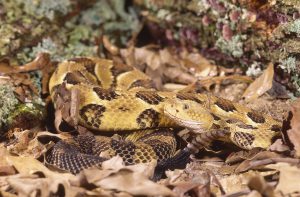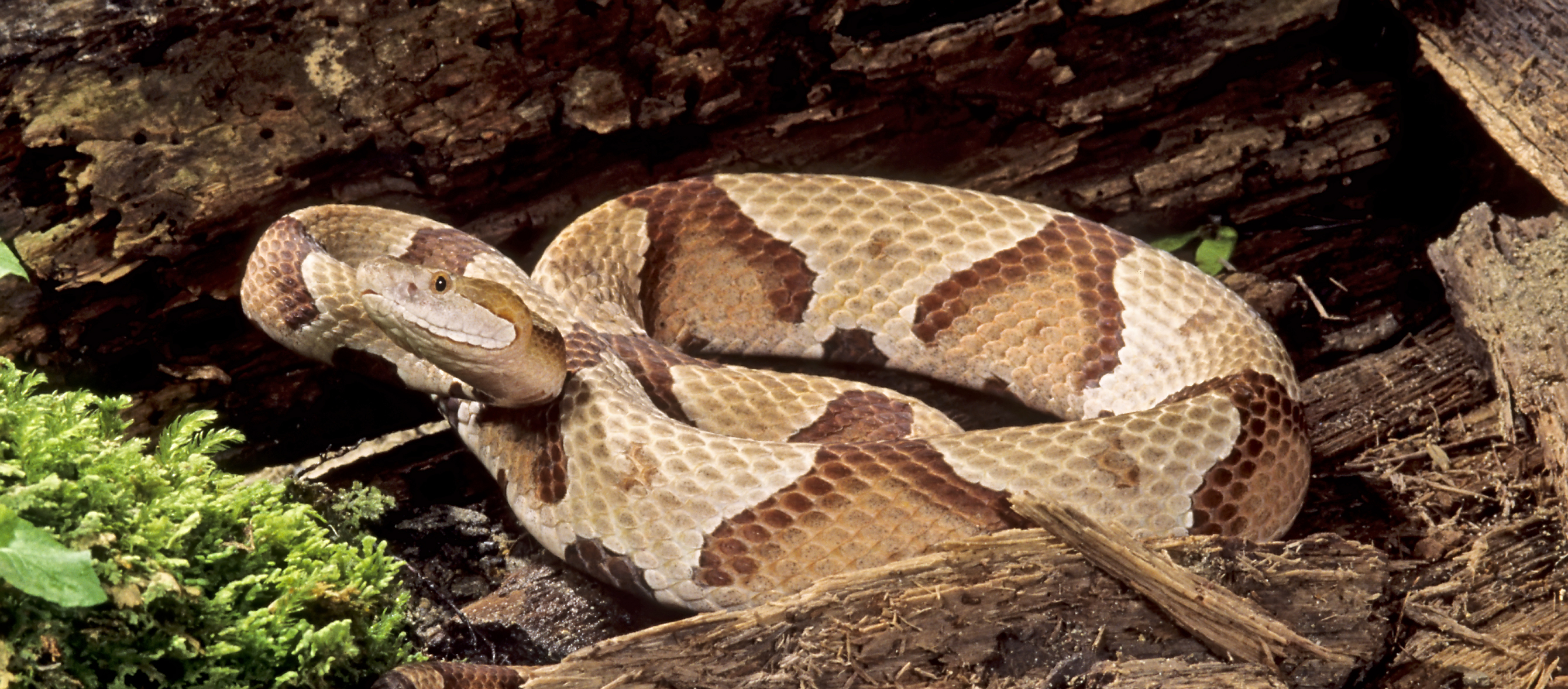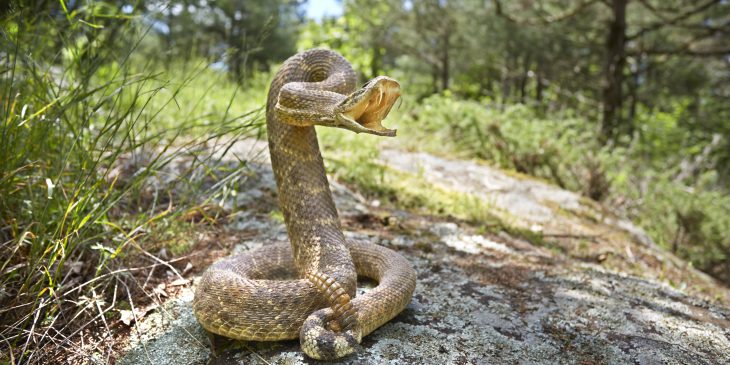In order to social distance, people are required to spend a lot of time inside, but if they avoid others, people can safely venture outdoors for a walk or hike. Many people have been frequenting local parks or hiking areas, and as the weather heats up, the Pittsburgh Poison Center at UPMC would like to remind the public about the potential for venomous snake bites in Pennsylvania.
“Every year, Pennsylvania poison centers manage dozens of snake bite cases,” said Michael Lynch, M.D., medical director of the Pittsburgh Poison Center at UPMC. “The frequency of snake bites typically spikes in May through September as warmer weather draws people outside and increases the number of snake encounters.”
The Pittsburgh Poison Center at UPMC recommends avoiding reaching into dark, covered brush including piles of wood, leaves and other vegetation. It is best to use a long stick to check these areas first, before reaching in with hands.
Snakes can strike from several feet away when they feel threatened. If you encounter a snake, do not move closer to take pictures and do not attempt to catch it. Additionally, all snakes with rattles are venomous, so watch for this feature and use extra caution.

Timber rattlesnake
“If you are going hiking in an area where there may be snakes, it is best to wear pants and high-topped, thick hiking boots,” said Lynch. “The size of the snake does not predict the potential for toxicity as small and immature snakes can deliver as much, or even more, venom than larger snakes.”
In Pennsylvania, the most common venomous snakes are Copperheads and Timber rattlesnakes which usually live in the woods and overgrown fields. Each of these account for about 50% of venomous snake bites reported to Pennsylvania poison centers.
“If you do sustain a bite, it is important to remain calm. While Copperhead and Timber rattlesnake bites are potentially dangerous and painful, they are rarely fatal,” said Lynch. “Leave the area as quickly as possible and do not try to capture, kill or take a picture of the snake that bit you.”

Copperhead snake
Not all bites from venomous snakes result in venom delivery. If venom is released, the bite will result in progressive pain, swelling and possibly easy bleeding, and is most dangerous to the limbs, especially smaller areas like fingers and feet.
Snakes that are naturally found in Pennsylvania do not cause nervous system toxicity that can paralyze a patient. But, if venom collects in a small compartment like a hand or foot, the swelling and pressure can become severe enough to block blood flow and require a surgery to treat. Therefore, it is crucial to elevate bitten limbs to spread the venom into larger parts of the body and dilute its effect.
If you experience a snake bite, The Pittsburgh Poison Center at UPMC recommends the following:
• If you are experiencing chest pain, shortness of breath, loss of feeling or movement in a limb or a change in mental status, CALL 911 and proceed immediately to the nearest Emergency Department. Pittsburgh Poison Center specialists and Toxicologists can assist emergency department physicians in treatment and anti-venom administration.
• Otherwise, call the Pittsburgh Poison Center at 1(800)222-1222. Remain calm and attempt to identify or describe the snake (color, rattle?).
• Straighten, immobilize and elevate the bitten limb or body part as high as possible without compressing the soft tissue.
• Note the time the bite happened.
• Remove all tight clothing or jewelry from the affected limb.
• Wash the bite with soap and water and cover the bite with a clean, dry dressing, if available, and if doing so does not cause delay in emergency care.
• Do not pick up the snake or try to trap/kill it.
• Do not apply a tourniquet or attempt to restrict blood flow to the affected area as that could trap venom in small areas of the extremity where it can do the most damage.
• Do not cut the wound.
• Do not attempt to suck out the venom. Venom extraction devices and sucking out the venom are not effective and can result in additional skin or tissue injury and infection.
• Do not apply heat, cold, electricity or any substances to the wound.
• Do not drink alcohol or caffeinated beverages or take any drugs or medicines.
• If you are in a remote area, return to a populated area as quickly as possible.
“Bite management may differ for privately-owned exotic snakes,” explained Lynch. “Anyone sustaining a bite by an exotic snake should call the Pittsburgh Poison Center immediately for personalized treatment recommendations.”
If you are concerned about a venomous snake bite, call the Pittsburgh Poison Center at UPMC 24/7 at 1(800)222-1222 to discuss the case with a poison specialist.









